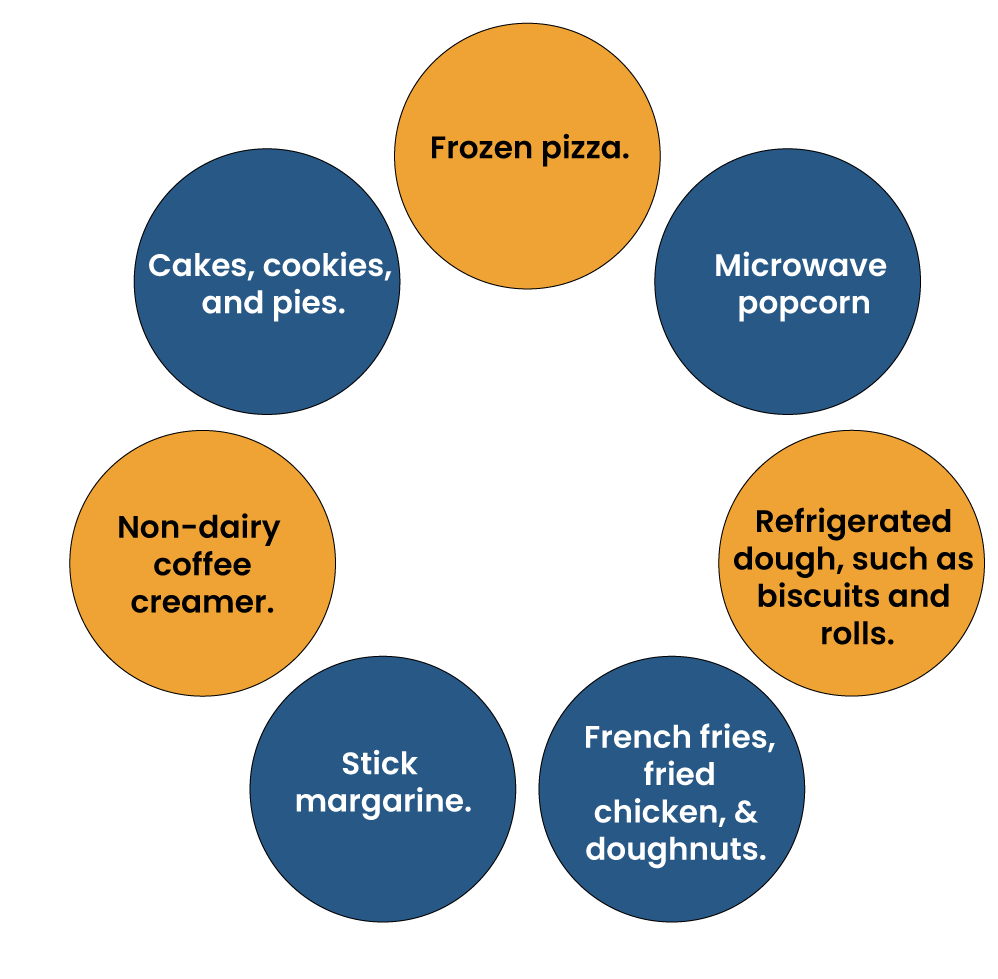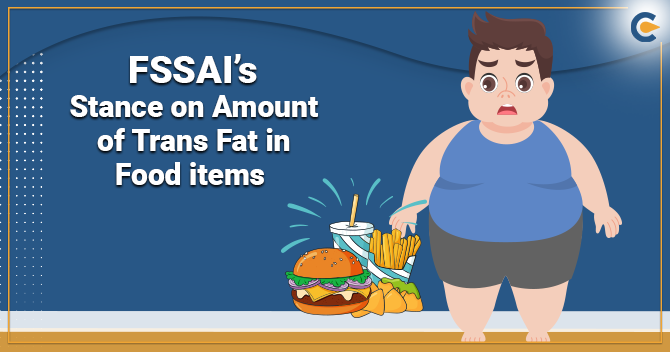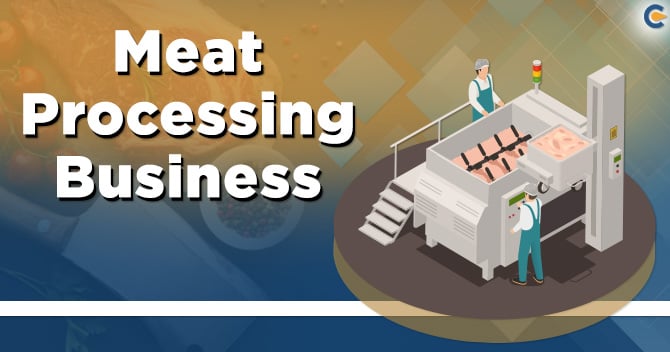Trans fat is the most common type of fat found in an array of food items, including cakes, cookies, coffee creamer, Frozen pizza, so on and so forth. They can be naturally occurring or artificially added. Natural trans fats are also found in certain non-veg food items. Furthermore, artificially added trans fats are created via a chemical reaction and are added to a different type of edible product during the manufacturing process. Some studies have suggested that the said form of trans fat may escalate the risk of heart disease by raising the LDL cholesterol & reducing your HDL cholesterol; but, the studies examining cardiovascular disease with naturally occurring trans fats are conflicting. The regulator like FSSAI is already aware of the ill-affect of trans fat consumption and has taken several measures to reduce its widespread consumption. In this blog, we will explore these measures and try to know something about this useful yet harmful fatty acid.
Trans Fat is usually found in the following food items:


How is FSSAI responding to the ever-increasing consumption of Trans fat?
In January 2021, FSSAI, the premier food regulator of India, came up with an announcement to reduce the percentage of trans fat in food items. With this announcement, our nation has become part of 40 nations globally that have proper regulations in place to eliminate trans-fat, and it will be among the first nations in Asia after Thailand to adopt regulations for the elimination of trans-fat.
Read our article:Everything you need to know about FSSAI License Renewal & Validity
What are the primary FSSAI norms that prohibit the use of excessive trans fat in food items?
The key FSSAI norms that limit the amount of trans fat in food items:
- Limiting industrial Trans-Fat acids to not higher than 3% in all oils and fats by January 2021 & limiting the same to not higher than 2% by January 2022.
- All food items that include fats and edible fats as an ingredient will not contain industrial trans-fatty acids higher than 2% by mass of aggregate oil/fat included in the product, on & from Jan 1, 2033, as per the FSS Prohibition and Restriction on Sales) regulations.
- The FSSAI norms shall encompass vanaspati, edible refined oils, margarine bakery shortenings, vegetable fat spreads, and mixed fat spreads.
- In 2011, India enacted a regulation that had set a cap of 10% of Trans-fat acids in fats and oils, & and it was further reduced to 5% in the year 2015.
An overview on the Industrial Fatty Acids
Industrial fatty acids refer to geometrical isomers polyunsaturated as well as monounsaturated fatty acids that possess non-conjugated, interrupted by at least one carbon double bonds, methylene group in the trans configuration.
It differentiates such acids from dairy-based items and meat products. Industrial trans-fat is created by appending H2 to liquid vegetal oils to make them more solid, which improves their overall stability at room temperature and keeps them fresh for an extended period.
Trans-fat is largely found in partially hydrogenated vegetable oils/ margarine bakery shortenings and baked and fried foods. Some research suggests that the higher intake of such acids is linked with an increased risk of high cholesterol & heart-related diseases.
As per the data released in 2017, every year, over 15 lakh deaths are reported in our nation attributed to cardiovascular disease, out of which 5% occur due to the intake of trans-fat.
Elimination of Industrial Trans-Fat Acids is acknowledged as one of the viable factors that can eliminate heart-related ailments.
It is pertinent, particularly in the prevailing scenario where the ongoing pandemic is extending the risk to the people suffering from cardiovascular disease, hypertension, diabetes, etc. In 2018, WHO[1] called to eliminate the industrially created trans fat by 2023 & released the relevant proposal REPLACE for it.
To render the change towards trans-fatty acids, FSSAI is building capacities of the food sector and, in this context, concluded an array of a webinar in the recent past.
These webinars were intended to target specific stakeholders, emphasizing obstacles they encountered towards shifting to trans fat-free products & providing proactive measures via talks made by subject matter experts.
The webinar was joined by more than 3600 participants from the food sector, bakers, edible oil industry, sweet manufacturers, academic institutions, etc.
An Outlook on other measures to eliminate Trans fat in food
Following are the additional measures taken by the GOI in the wake of ever-increasing trans fat consumption.
- FSSAI came up with initiatives such as the Heart Attack Rewind mass media campaign and Eat Right Movement for reducing the consumption of Trans Fat. The Eat Right movement came to light in 2018, and its aims promote the habit of food safety and hygiene among the masses. It seeks to reduce the intake of sugar, fat & oil by 30% in 3 years.
- On the other hand, Heart Attack Rewind was an awareness-oriented video informing the masses regarding the ill-effect of trans-fat consumption. The video was aired in 17 languages on social media to maximize reach.
- Swastha Bharat Yatra was the FSSAI-backed initiative that aims to create nationwide awareness regarding food safety and healthy diets. More than 7000 enthusiasts took part and make it a significant success. This initiative was one of its kind as it was carried out in the form of the cyclathon event.
Conclusion
Trans fat is prominently used in a wide variety of foods and helps increase the shelf life of vegetable oil. They may not immediately impact human life, but they can prove detrimental to human life if consumed for an extended period. The majority of health experts often advise cutting down trans fat consumption as low as possible. In view of these facts, FSSAI has inculcated a regulation limiting the percentage of trans fat in food and other related items.
Read our article:FSSAI License Renewal: A Complete Checklist











